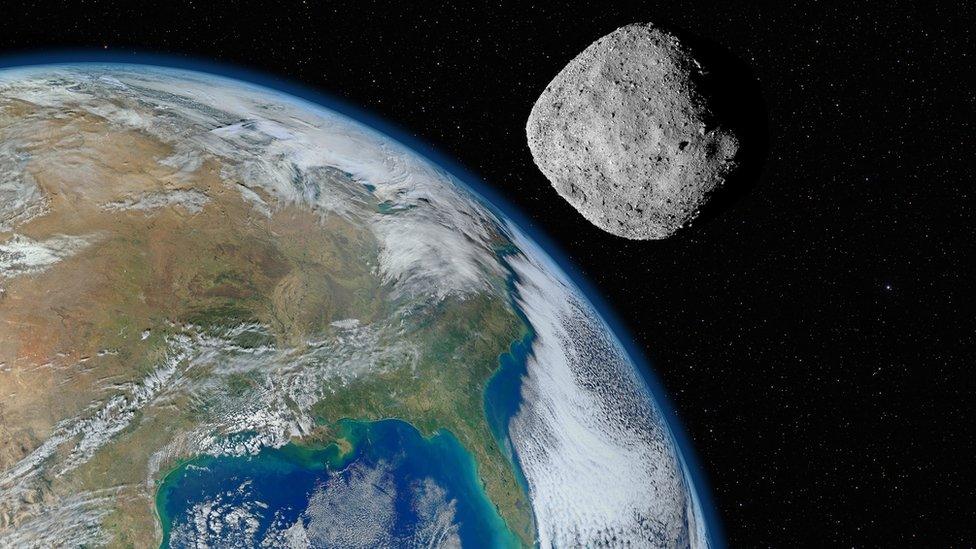Asteroids: Nasa says largest space rock of the year to fly past Earth
- Published
- comments

This illustration shows an asteroid flying past Earth - the 7335 (1989 JA) asteroid will be a lot further away
A huge asteroid is set to fly past Earth later this week.
The space rock has been given the name 7335 (1989 JA) and it's more than a mile in diameter!
Nasa says it's the largest asteroid to make a close approach this year.
But there is nothing to worry about - it will pass by our planet at a safe distance of about 2.5 million miles away from Earth.
The team at Nasa's Centre for Near Earth Object Studies - which tracks space rock such as asteroids, comets and dwarf planets - says that the asteroid, which was first discovered more than 30 years ago, will fly by on Friday 27 May.
What will happen?
Asteroids are rocky objects that orbit the Sun
It measures a whopping 1.1 miles in diameter, which is twice the length of the Burj Khalifa - the tallest building in the world!
Scientists say it's one of the larger asteroids that they're monitoring and they estimate that it's travelling at nearly 30,000 miles per hour.
Asteroids are giant space rocks in our solar system that orbit the Sun.
Sometimes they are called NEOs - Near Earth Objects.
No asteroid has hit Earth in 66 million years, since the one that caused the dinosaurs to become extinct.
This asteroid is one of more than 29,000 near-Earth objects (NEOs) that Nasa constantly monitors each year.
However, the chances of them hitting Earth are still very small.
Nasa also has a plan to knock away any future pieces of space rock that could hit the planet.
Last year, the Space Agency launched the world's first ever planetary defence mission.
It's called The Double Asteroid Redirection Test (Dart) and it is being tested with the aim to protect Earth from any future potential threat from an asteroid.
7335 (1989 JA) isn't expected to make another close flyby past Earth until June 2055, when it will pass by at an even greater distance away from our planet than this flyby.
- Published8 October 2021
- Published9 March 2021
- Published18 January 2022
